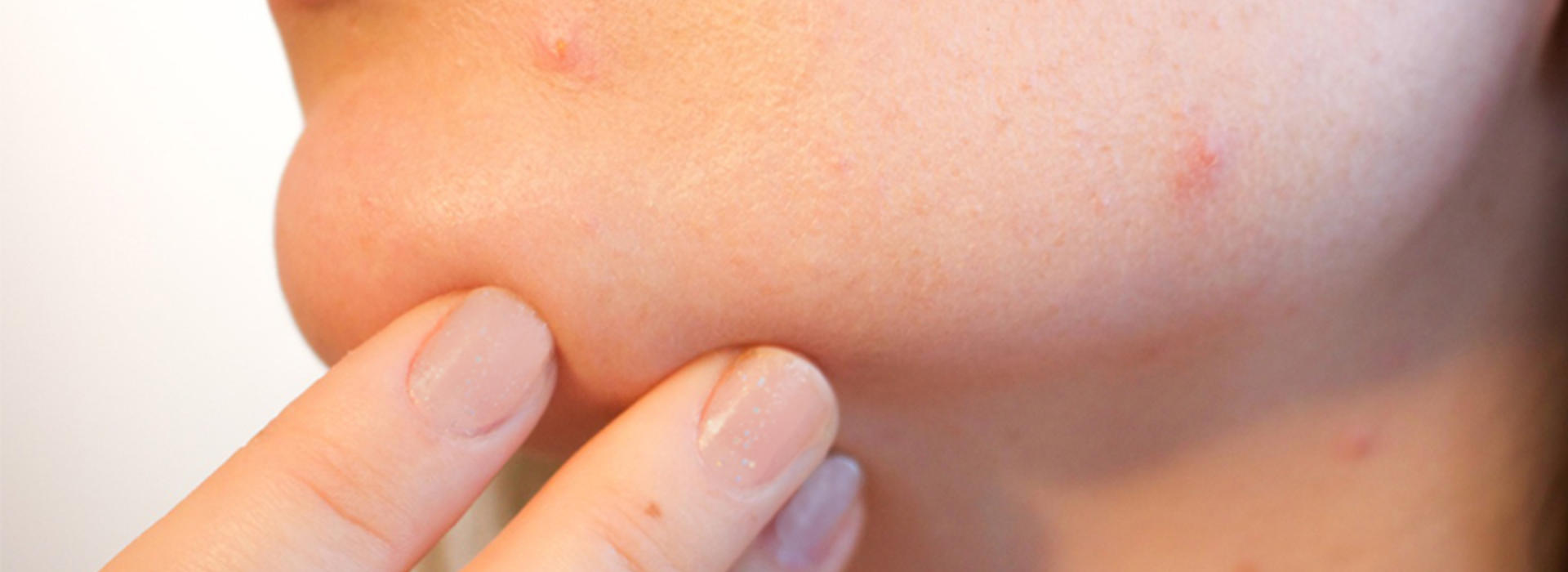
UMN-led Study Finds Relationship Between Acne, Sexual Orientation, and Mental Health Among Young Adults in the United States
Lesbian, gay, bisexual and other non-heterosexual people with acne are more likely to have suicidal ideations, according to new UMN-led research published in the Journal of American Academy of Dermatology.
While previous research has established that sexual minorities (defined as non-heterosexual individuals) are more likely than heterosexuals to have depression or suicidal thoughts, lead researcher Matthew Mansh, M.D., a resident fellow in the University of Minnesota Medical School’s Department of Dermatology, hypothesized that sexual minorities with acne might be an extremely at-risk population for developing mental health issues. Existing data show physical disfigurement from acne can lead to depression or suicidal thoughts and that body image and appearance concerns are particularly emphasized among sexual minorities.
The study analyzed data from 4,094 heterosexuals and 564 sexual minorities, all from the United States and between the ages of 18 and 28, via responses to Wave III of the National Longitudinal Study on Adolescent to Adult Health.
Mansh and his colleagues were surprised by the results: The rate of suicidal ideation among sexual minorities with acne was 35.4 percent, compared to 15.3 percent among sexual minorities without acne. This is in stark contrast to their heterosexual counterparts with and without acne, whose rate of suicidal ideation was just 7.9 percent and 5.3 percent respectively.
“The results highlight the mental health issues that many patients with acne experience, and further establish that sexual orientation can be an important predictor to identify high-risk patients,” Mansh said.
Mansh emphasized the importance of physicians having access to information about their patients, especially sexual orientations because it allows them to screen for high-risk patients and give appropriate treatment referrals.
“Knowing more about your patients helps you treat them on a more individual basis and better understand how their disease can affect their overall life in the context of their many identities,” Mansh says.
Study co-authors include Yi Gao, B.A. (Cleveland Clinic Lerner College of Medicine), Esther Wei, Sc.D. (California Pacific Medical Center Research Institute), Sarah Arron, M.D., Ph.D. and Eleni Linos, M.D., M.P.H., Dr.PH (University of California, San Francisco), and David Margolis, M.D., Ph.D. (University of Pennsylvania).